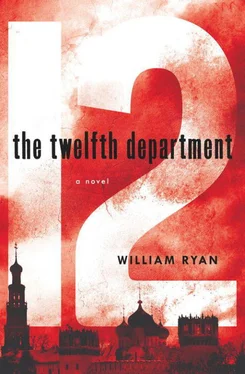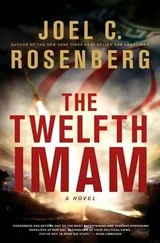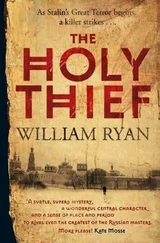“You were quick to move on,” Korolev said, sounding testier than he intended. He gathered himself, making the effort to smile.
“You can’t let the grass grow under your feet these days.”
Lilova sat down—her sharp blue eyes taking in the empty shelves.
“Food costs money, and the dead don’t pay,” she continued. “Not that I’d anything against the late comrade, but it is what it is. What happened to you?”
“I fell out of a window.”
“Two or three times by the look of it.”
“It’s not as bad as it seems. Notice anything different in here?”
“All his books are gone. I saw them taking boxes out of the building yesterday. I wondered what they were up to.”
“We need to ask you a few questions.”
“Of course. If I can help, I will—he was a good man.”
Korolev glanced up at her—she meant it, was his guess.
“How long did you work for him?”
“Since he arrived from Leningrad. Three months back. I know all the caretakers around here, Semyon Semyonovich downstairs told me the fellow needed someone to look after him, and I needed the work. The last people I looked after—well—they’re not around anymore.”
“What happened to them?”
“Husband to the camps, wife and children to her parents.”
Korolev looked at the maid—she must be at least fifty-five, possibly older. She spoke of her former employer’s arrest as casually as she might have described a queue for bread. It was just something that had happened, nothing to get upset about. Galina Matkina had been the same over at Azarov’s apartment—as far as they were concerned, arrests only happened to the higher-ups.
“Did you live here? When you worked for him?”
“No, I live with my son and his family—two streets away.”
“The son you were visiting in the hospital?”
“No, that’s the youngest—but he lives with us as well.”
Korolev imagined a crowded room—two if they were lucky—in some communal apartment. The Lord knew how many would be crammed in there.
“Dr. Shtange was a nice fellow though—I thought I’d get longer out of him.”
“What do you mean?”
“Well, I’ve had two arrested, one killed himself, and one transferred to Vladivostok.” Lilova seemed to think being sent to Vladivostok wasn’t that different to being sent to the Zone—or committing suicide, for that matter. “And now this. It’s not unusual, I suppose. The arrests at least. And transfers aren’t unheard of. But this was a surprise. Once they start getting themselves murdered—well—you begin to wonder. Still, I always say—you can’t get into too much trouble making soup and washing clothes.”
It was a fair point, although the mention of soup made him remember just how hungry he was.
“Did he ever mention Professor Azarov?”
“That fellow who was killed the day before him—his boss?”
“That’s the one.”
“He didn’t much like him, I could tell that. I heard them arguing on the telephone once or twice, and one time, after he hung up, he called him a devil. And Comrade Shtange was a mild-mannered man.”
“What were they arguing about?”
“Scientific business, I suspect. Nothing of interest to me anyway.”
“I see. Do you know why he disliked Azarov?”
“It seemed he didn’t like the way things were done at the institute. His wife came to visit with his children two weeks ago and he said as much to her.”
Slivka raised an eyebrow and Lilova shrugged her shoulders.
“It’s a small flat—I know my faults, Comrades.”
“In our profession, Citizen Lilova, we don’t consider curiosity a fault.”
Lilova smiled at him demurely, as if she thought he might be flirting with her. He hoped the sudden warmth in his cheeks didn’t mean he was blushing.
“Did you,” he continued, in a gruffer tone of voice, “happen to overhear or notice anything else you might like to tell us?”
“Such as whether he was having an affair, what he argued with his wife about, whether he gambled away the institute’s money? That sort of thing?”
“That sort of thing would be very interesting,” Slivka said.
Lilova shook her head, regret apparent in the gesture.
“I tell you he was as honest a man as I ever met, and a model husband with it—he’d go home to see his family every weekend, even if only for a day. And if he didn’t go there, they’d come here. They never had a harsh word for each other. A fine wife, foreign but speaks Russian like any one of us. She’s also a doctor. And his two boys were good children, very polite. And as for having a wandering eye for other women, he didn’t have the time. Between working at the university and the institute and trekking back and forth to Leningrad, he barely had time to sleep. And sometimes not even that—more than once he worked through the night.”
“Do you know why he was at home on Tuesday morning, not at the institute?”
“He worked here often—unless he was doing surgery, that is. In which case he’d spend days and nights there, looking after his patients. Otherwise he liked to work here. Reading, writing, that sort of thing. He’d take the phone off the hook and I was told to keep visitors away. In my opinion, he didn’t like that institute one little bit. And it wasn’t just the professor he didn’t like about it either. The university was different—he seemed happy when he went over there.”
Korolev wondered what kind of operations Shtange had been carrying out, given Kolya’s comments at the zoo, but he decided this was a question better left until his visit to the institute.
“You said visitors?”
“Sometimes students would come from the university—he was very friendly with them, encouraged them. But otherwise there weren’t many—he hadn’t been in Moscow long.”
“Was there a particular reason he was home the morning he was killed? His boss had just died, after all—I’d have thought he’d have had plenty to do.”
“All I know is that the doctor told me on Monday evening that with Professor Azarov dead he’d almost certainly be leaving Moscow—and that I should think about looking for another place to work. I came in at the same time as usual on Tuesday morning—I make him his breakfast at six—and he was in good spirits, I’d say. Said he wasn’t going into the institute and he was fine with me going to visit my boy at the hospital. As I said, he was a comradely sort of a man.”
Korolev looked at Slivka, wondering if she could make sense of it. If Azarov was dead then surely Shtange, as his deputy, should have been at his post—and why would he have thought Azarov’s death would mean he’d be leaving? Of course, he’d suggested as much when Korolev had met him, but that had just seemed to be proper socialist modesty. Even if someone else had been immediately appointed to take over from Azarov, surely Shtange would have been responsible for some kind of handover?
“Did he say why he’d be leaving?” Slivka asked. “Or when?”
“No. But he was pleased about it. He missed his family being here. It wasn’t his choice to come to Moscow—he was asked to. But he was a good man, promised to make sure I’d be all right. Which was kind of him—there’s many just look after themselves these days.”
“How did he react to the professor’s death?” Slivka went on.
“He didn’t like the fellow, he said as much, but he was shocked by it. He said it was sad that anyone should come to such an end. Even a man like him.”
“Even a man like him?”
“Those were his words.”
They went through all the usual questions with the maid—trying to account for her whereabouts, for Shtange’s, asking for a list of all the people he might have had contact with—and by the time they’d finished with her they had the beginnings of a picture of the doctor: conscientious, hard-working, a good comrade and yet, for some hidden reason, a man someone decided to kill.
Читать дальше












